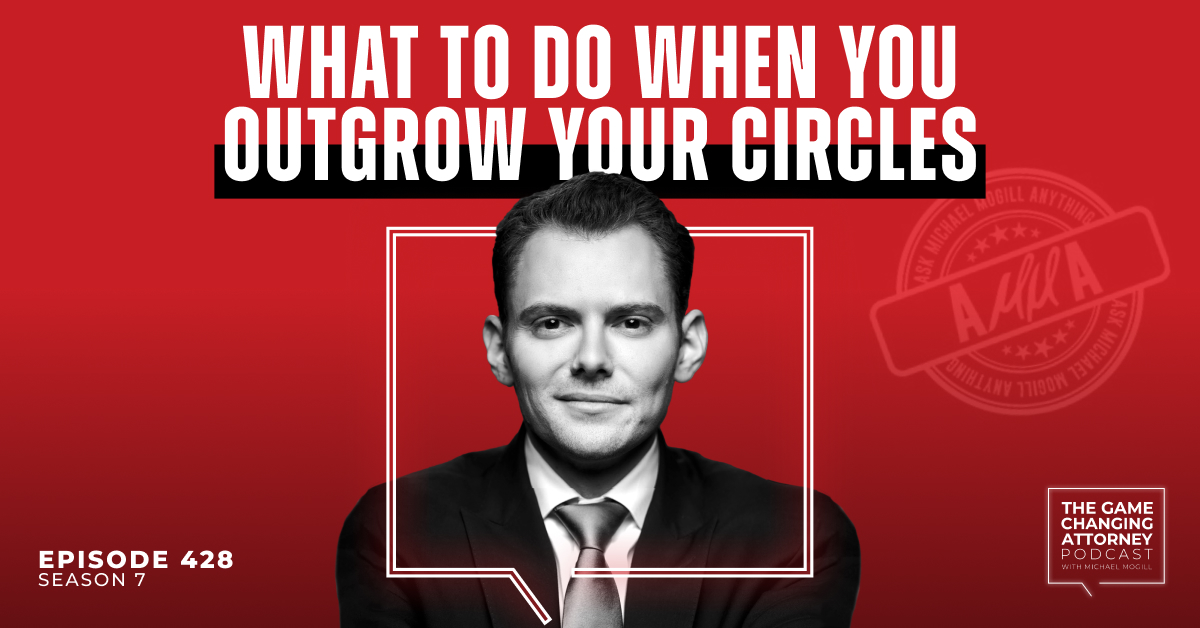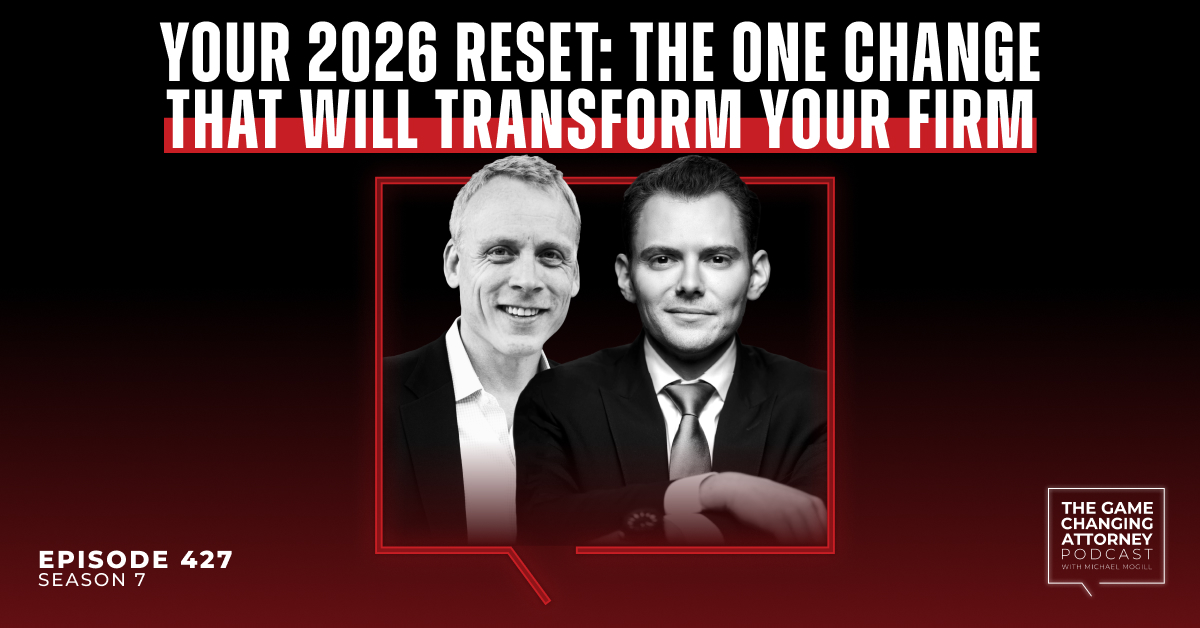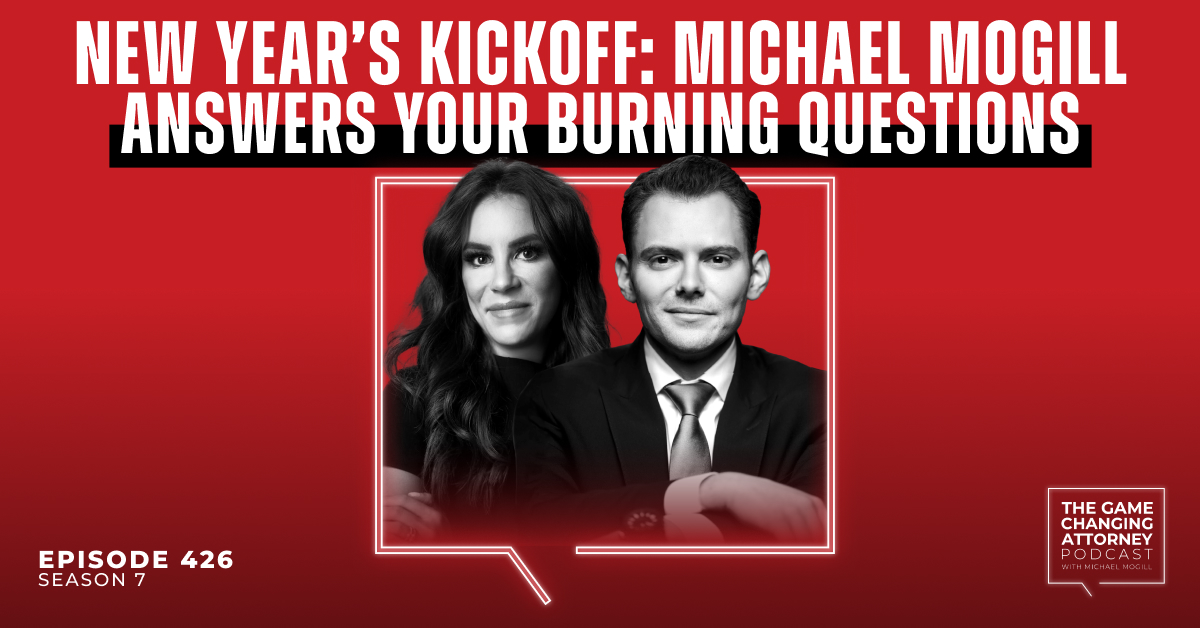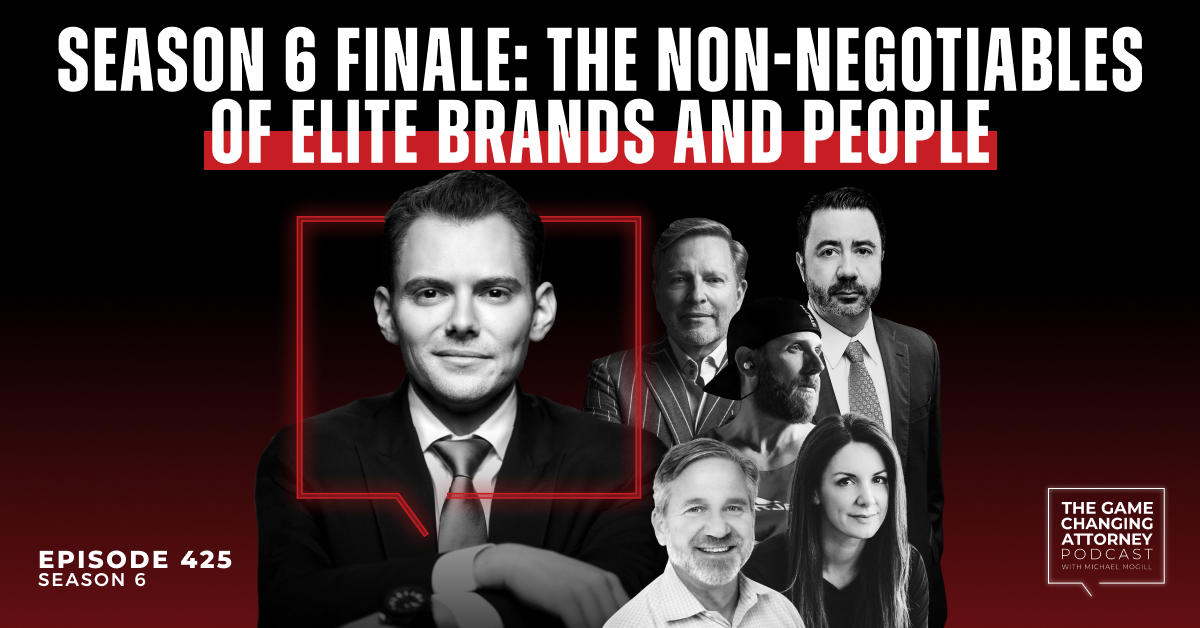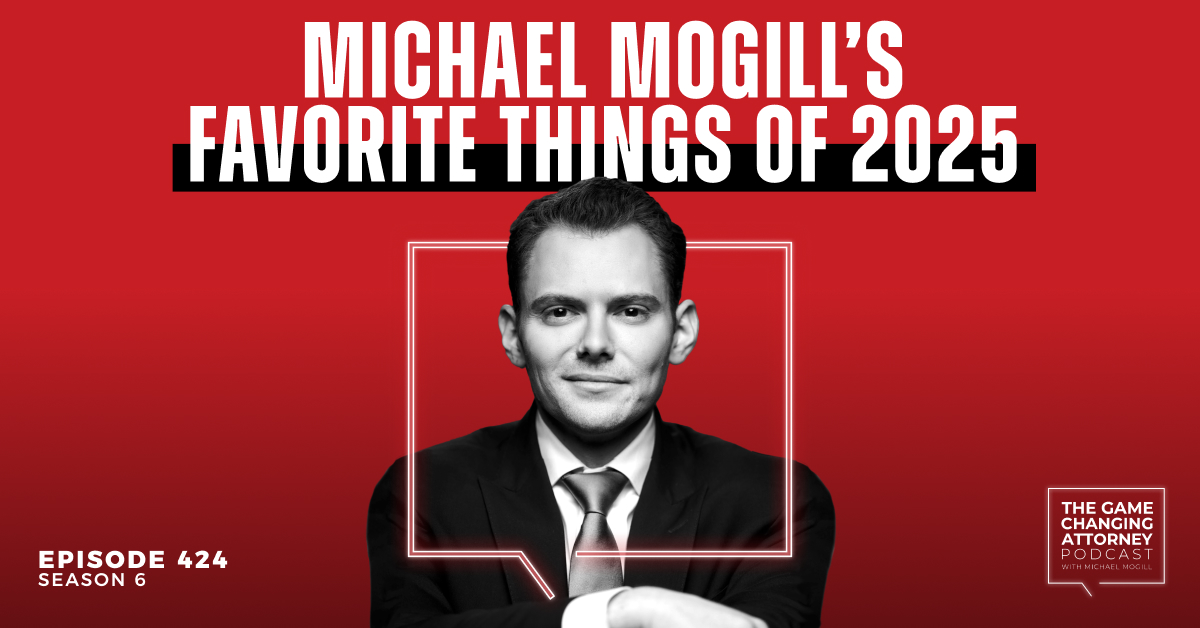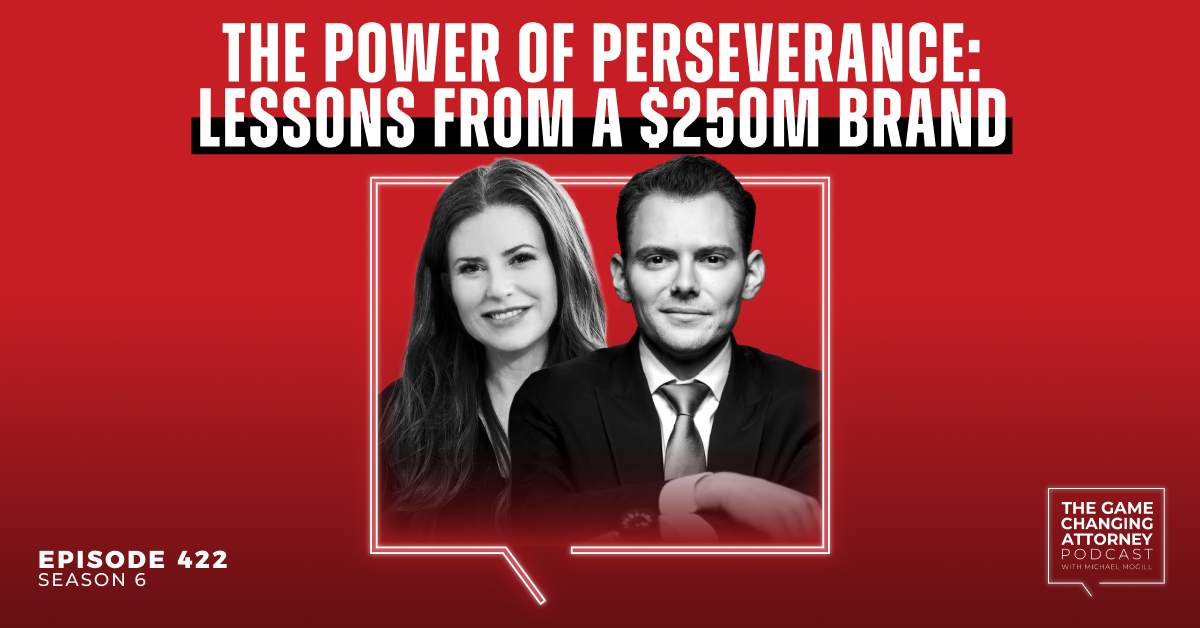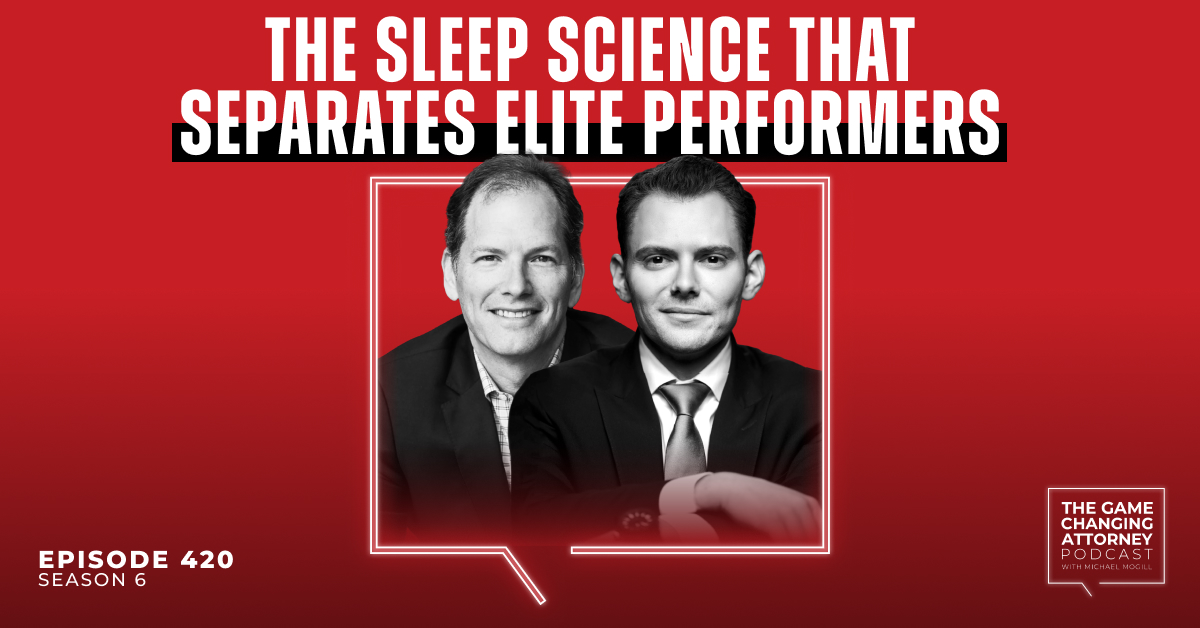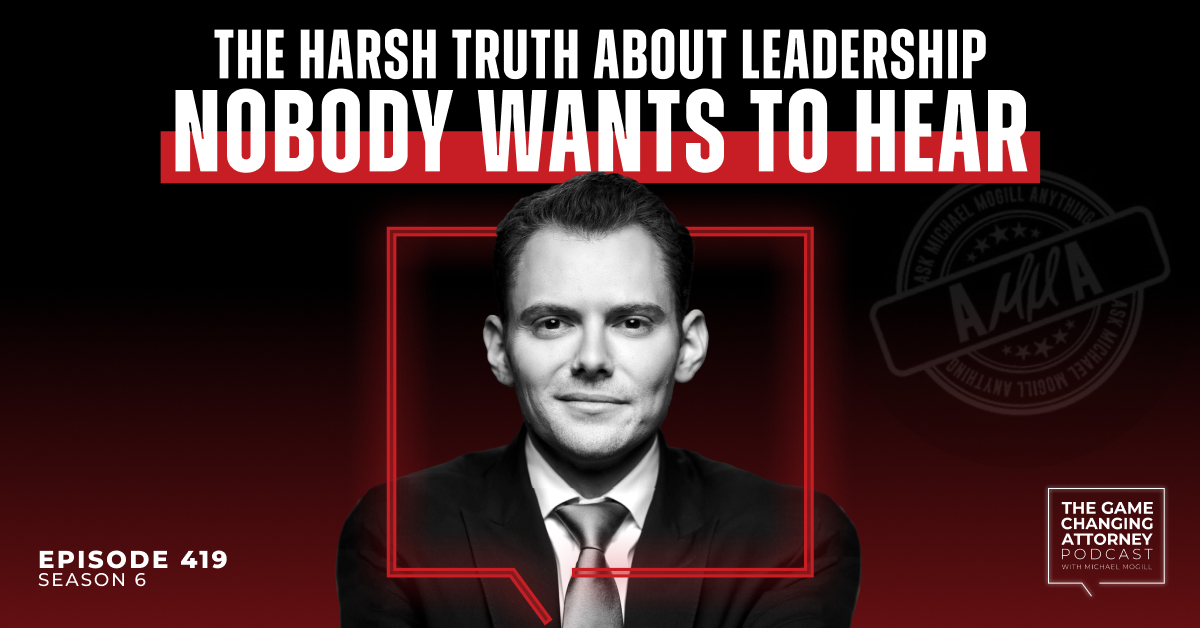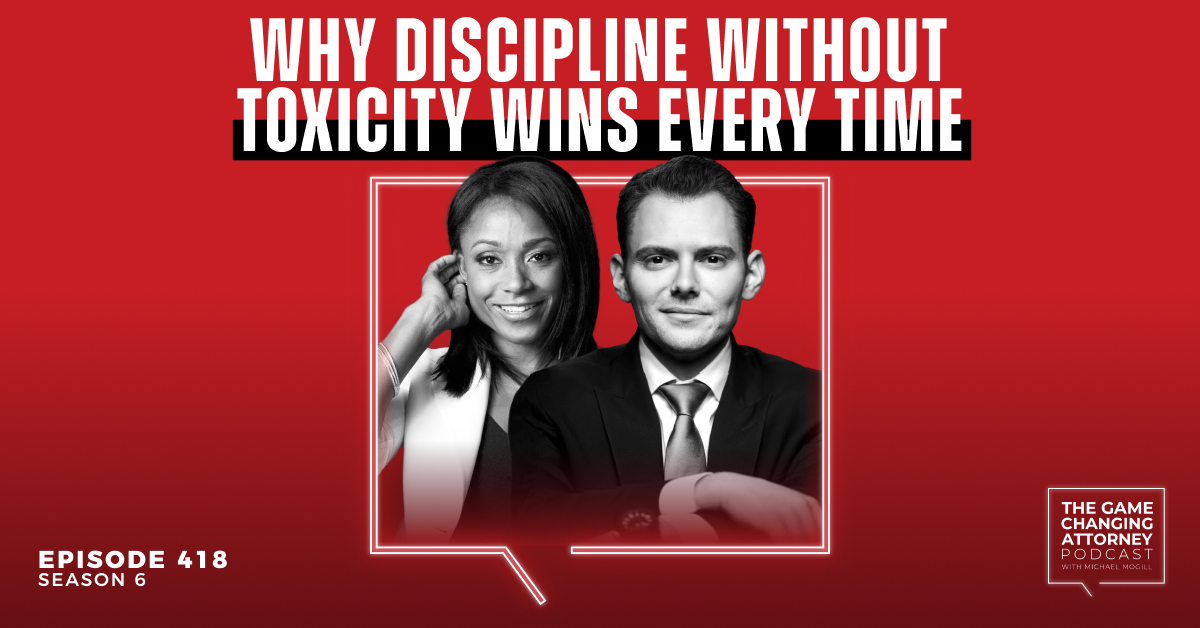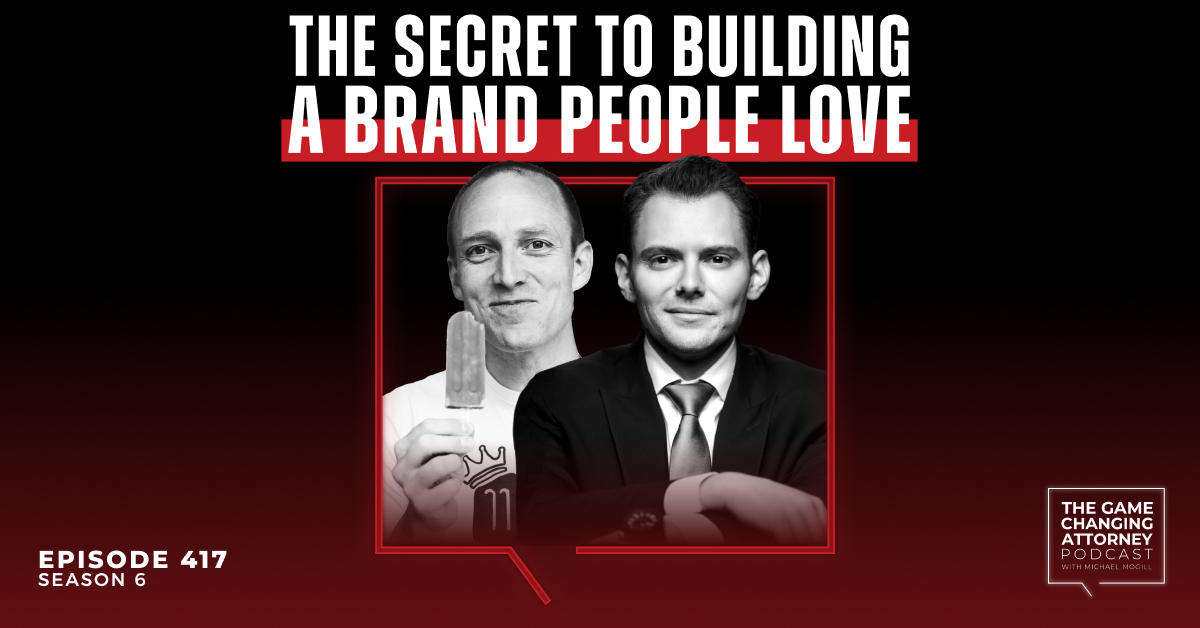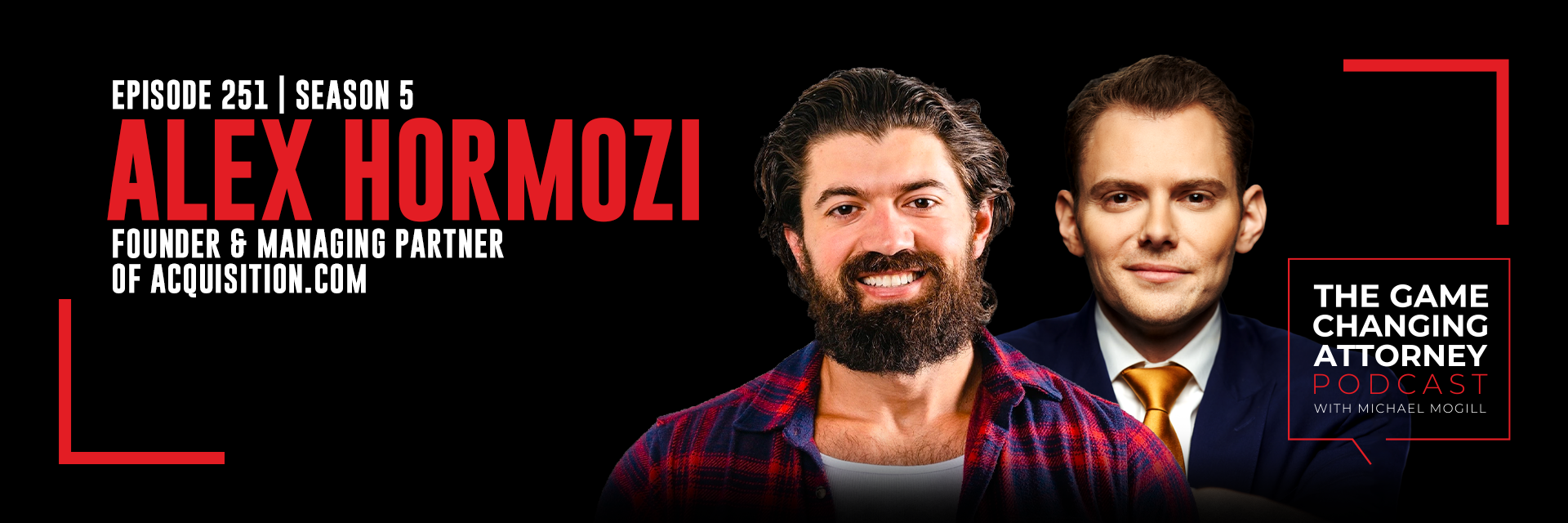
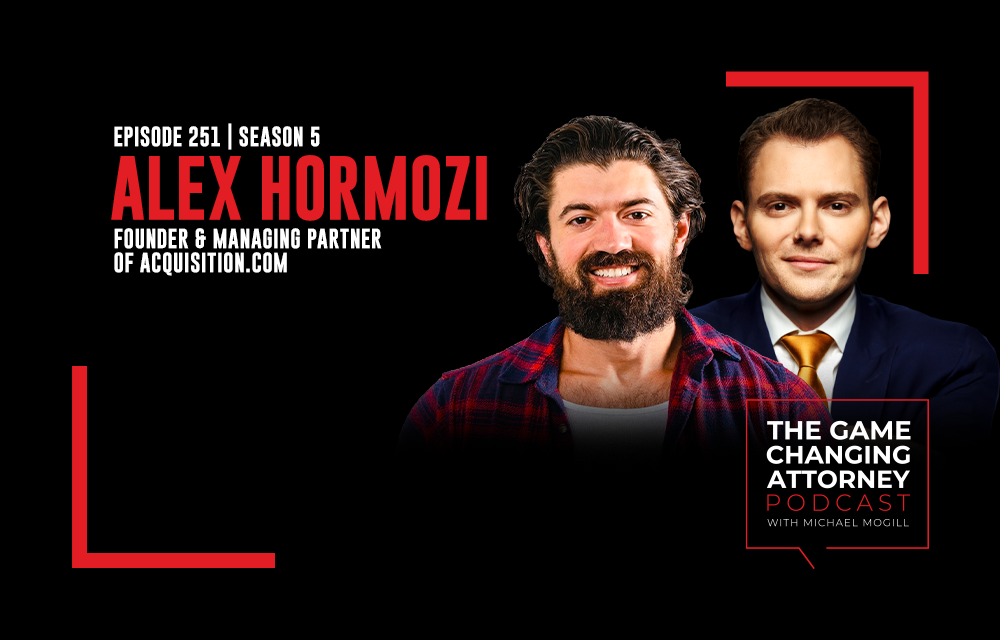
Episode 251 — Alex Hormozi — The Power of Humility in Achieving Entrepreneurial Success
Embarking on the journey of entrepreneurship demands resilience, courage, and unwavering determination to navigate through its myriad challenges.
Enter Alex Hormozi, the visionary Founder & Managing Partner of Acquisition.com. Alex’s path to success has been far from straightforward, marked by twists and turns that have ultimately led him to his current role alongside his partner, Leila.
Yet the hurdles he overcame along the way remain etched in his memory, shaping his remarkable journey.
In this episode of The Game Changing Attorney Podcast, Alex and Crisp Founder & CEO Michael Mogill delve into:
- Unveiling how ego obstructs progress
- Exploring the transformative power of acquiring new skills
- Embracing humility as a catalyst for achieving extraordinary success
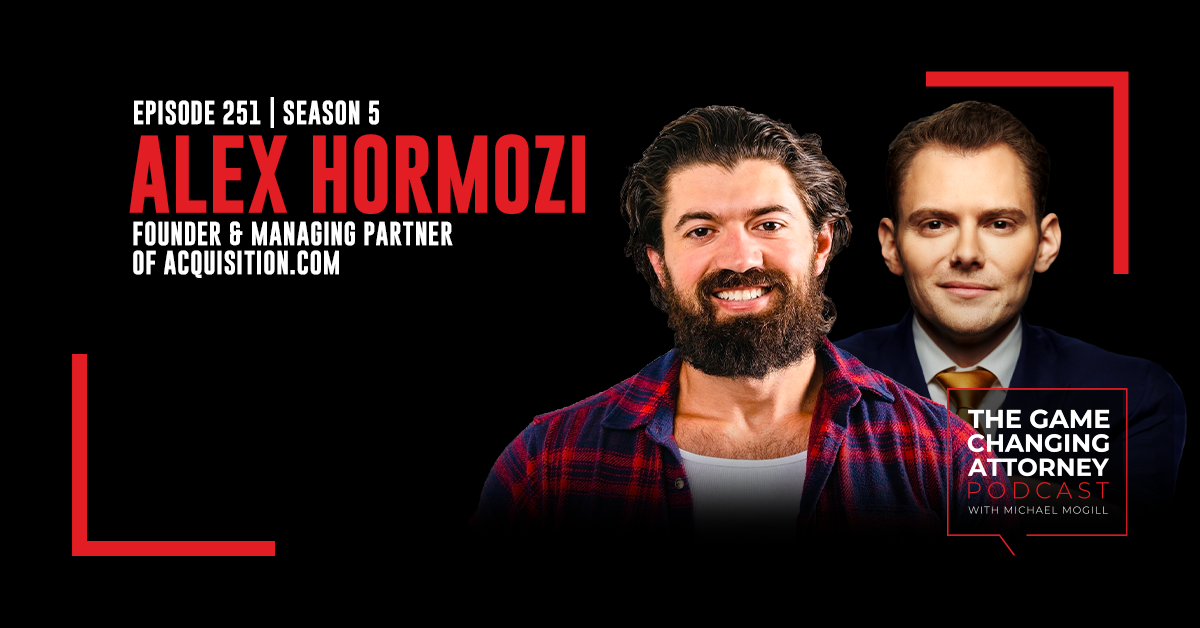
Listen & Subscribe
Show Notes:
The power of brand. “Brand is one of the ways you can differentiate anything. It’s the goodwill that you have in the audience and your ability to price above a commoditized version of whatever you offer. That discrepancy between what price a commodity sells at versus what yours sells at is the pricing power that brand affords you. With price being the single strongest lever on profits in any kind of business, having a brand becomes incredibly important if it’s the strongest influencer on your ability to practice.”
Don’t quit. “A lot of times people are very driven by their mission or their purpose or their big vision, and I had none of those things. I mean, my vision was A) don’t be broke, and B) don’t let my dad be right. Really, B was more important to me than A, but A was the facilitator of B. Just the idea of going back as a failure to Baltimore was something that I would rather have died than done. As much pain as I was going through at the time, it was better than the alternative of admitting defeat — and so for me, that was the thing that got me through it. I think for a lot of entrepreneurs, if there’s a couple of key themes in the messages that I want to get out, it’s that there’s a lot of positive jargon that’s put out by social media and influencers, but the most important thing is to follow your passion.”
Find your fuel. “My singular message for everyone taking this path is to use your pain. Most entrepreneurs don’t need to look very far to find the pain in their lives. Anger, shame, fear, resentment — whatever it is, use it. We have different things that have fueled us in our lives, and I would rather have people just use what they have because I think that is in essence what entrepreneurship is about. It’s being resourceful, not really necessarily about having resources. If we consider a resource as a requirement to be successful, I just don’t think that’s necessary or true. I think you need fuel. You should use whatever fuel you have. I think over time, if you get your head above water, you’ll be able to find a different fuel. It’s not necessarily sustainable, but in the beginning, you should move with whatever you’ve got.”
The commonality of great leaders. “If you have humility, you can do a lot. If somebody’s humbled and they can accept feedback, then they can change. It’s very difficult to do, because if someone doesn’t have humility, then it means that whoever they are on day one has to be the person that they need to be at day 1,000. If they can’t admit there’s a deficit that they can’t improve, they’re already screwed. So humility is by far the biggest thing when it comes to being a successful founder. Beyond that, they have to have drive and determination — their fuel.”
Confront reality. “Entrepreneurs have to confront reality. A lot of them are delusional — sometimes in a good way. You have to be optimistically delusional in some ways, in the certain capacity to be an entrepreneur. But a lot of times that delusion takes control and they believe the false statements that you just said, whatever it may be. A lot of entrepreneurs learn the wrong lessons from experiences.”
Get better. “The idea is that you get enough customers, you can get feedback and continue to improve the product, and then once you get enough people referring and bringing friends to it (which is my litmus test for it), then you scale it. You still consistently want to make it better and better and better. Perform a litmus test asking yourself if you’re getting referrals from this product. Once you have that, then all of your marketing efforts from there on out are going to be enhanced, and then that’s what’s going to allow you to outcompete your competition who wasn’t so long-sided and always just wanted to make the next buck.”
Drop your ego. “I think we have all this irrational fear around taking bigger swings, doing the things that we want to do, making whatever dreams we have real, or at least giving them a shot. We play these videotapes in our minds of these future scenarios where people who aren’t thinking about us are saying things that they’re not because they don’t care about you; they think about themselves. No one’s thinking about you, and I think getting over yourself is a really good way to be able to have more personal freedom in the choices we make and take on big risks.”
How to become smarter. “If you want to be smarter, the key is to change your behavior faster. I think that operationalizes knowledge. A lot of lawyers are big readers and they love the mental masturbation of consuming stuff, but if your behavior does not change after you go to a workshop or a seminar or you listen to this podcast, you learned nothing — which means you are not that smart.”
What does being a game changer mean to you? “A game changer is someone that you would introduce new variables to that would then force the rules to change.”
RESOURCES & REFERENCES
Leila Hormozi
Acquisition.com
Gym Launch
Jessica Mogill
Warren Buffett
Queen Elizabeth II
Connect with Michael
- Text directly at 404-531-7691
